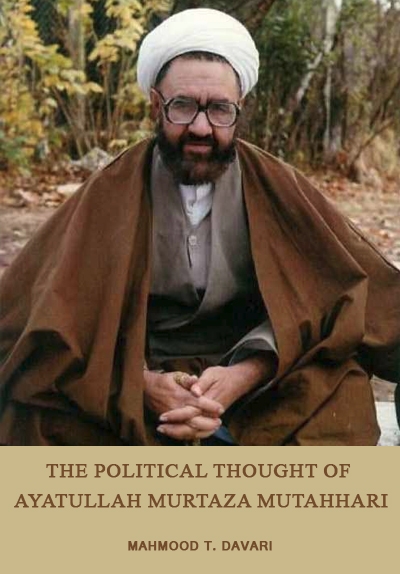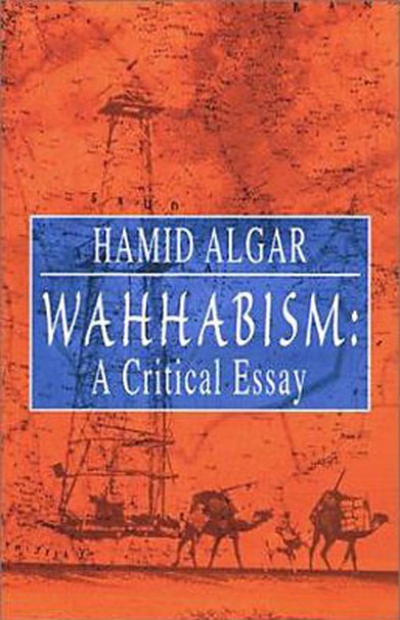



The Islamic World Peace Forum holds " International Symposium on Diplomacy and Soft Power in the Seerah of the Prophet " In this regard IWPF has had an interview with Dr. Zafar Bangash, Islamic movement journalist and commentator in Toronto, Canada and the Director of the The Institute of Contemporary Islamic Thought (ICIT), to ask about some concepts considered as the keywords and basic ideas in this regard...
Dr Kalim Siddiqui has left a huge legacy of intellectual output on Muslim political thought. We consider only a few aspects from his great contribution.
In Part 1 of his article on the acquisition of political power, Dr. Perwez Shafi examines the peculiar evolution of Sunni political thought and its crippling impact on the contemporary Islamic movement.
Concepts are useful tools that aid our understanding. Children learn new concepts through association with things familiar; adults learn through experiment and experience. Just as children learn not to put their hand in the fire because it burns...
In this month is the 10th anniversary of the death of Dr Kalim Siddiqui. The occasion will be marked by a Kalim Siddiqui Memorial Conference in London on April 23, on The Islamic movement: between moderation and extremism. Here we republish one of Dr Kalim’s most important writings, Processes of Error, Deviation, Correction and Convergence in Muslim Political Thought, which was first published in 1989.
Murtaza Mutahhari was a significant figure in the movement that brought into being the Islamic Republic of Iran. Mutahhari, a particularly close student of Ayatullah Khomeini, is considered one of the most prominent intellectual figures among Iranian and Shi‘ite scholars of his time. This book presents the life and works of this philosopher, jurist, preacher and writer, who was educated in the Qum Seminary and worked in Tehran. It describes how Mutahhari became familiar with Marxism and secularism, and how he responded to the challenge of these two movements. It demonstrates how he gradually represented himself as a major theorist, offering ideological analyses of Islam. The book highlights Mutahhari’s non-radical, non-violent way of action. Drawing upon firsthand reports, notes and interviews with Mutahhari’s family and friends, the author highlights less-documented parts of the political trends in contemporary Iranian society.
1Muslims can take comfort in the fact that their present state of powerlessness is not a permanent condition; circumstances can and do change...
DR KALIM SIDDIQUI, Director of the Muslim Institute, London, and founder of Crescent International, was one of the greatest Islamic movement intellectuals of the twentieth century. This month marks the seventh anniversary of his death in South Africa on April 18, 1996. To mark this occasion, we are reprinting an abridged extract from his final book, Stages of Islamic Revolution (1996).
The Institute of Contemporary Islamic Thought (ICIT) held the latest of its International Seerah conferences in Colombo, Sri Lanka, from October 5-6. The conference was the latest part of the ICIT’s Seerah project, based on the pioneering approach proposed by the late Dr Kalim Siddiqui before his death in 1996...
Wahhabism: A Critical Essay, by Hamid Algar. Pub: Islamic Publications International, Oneonta, New York (www.islampub.com), 2002. Pp: 98. Pbk: $12.95.
A THEMATIC COMMENTARY ON THE QUR’AN by Shaykh Muhammad al-Ghazali. Pub: International Institute of Islamic Thought, USA; Islamic Book Trust Malaysia, 2000. Pp: 800; Price: RM60.00.
If life in Makkah was characterized by passive resistance, in Madinah it entered a more active phase with the Prophet himself initiating many of the moves.
Imam Khomeini (r.a.) was born on Jumadi Al-Akhir 20, 1320AH. Events to mark the centenary of his birth are taking place around the world. Here Crescent International presents an abridged extract from Dr Kalim Siddiqui’s paper Error, deviation, correction and convergence in Muslim political thought (1989), in which he presents his understanding of the Imam’s political contribution...
It is perhaps indicative of the present state of the Ummah that, outside his native Egypt and a small circle of Islamic activists, few Muslims are aware that August 29 marked the thirty-third anniversary of the martyrdom of Sayyid Qutb.
The whole idea of the millennium is intertwined with something deeper that is going on in Western civilization right now: the West is unsure of itself. It is unsure of its institutions, educational policies, business practices, social norms, and political understandings of the world.
There is a persistent perception nowadays that a country’s national and international strength is largely determined by its ability to create and utilize science and technology. In an extremely materialistic world, this has become the criterion by which a nation is placed in the family of modern nations.
Three years after his death Dr Kalim Siddiqui continues to nourish the global Islamic movement. Like a benign apparition his thoughts and ideas, hopes and aspirations pervade every private thought and every public halaqa of those Muslims who are consciously dedicated to the cause of Islamic change...
It is fitting that the first Kalim Siddiqui Memorial Seminar to be held in London, on April 11, should discuss the theme: “The Global Islamic Movement - 20 years after the Islamic Revolution.” The movement and the Revolution were close to Dr Kalim’s heart; indeed, they were the essence of his life’s work which his colleagues and associates will discuss during the Seminar.
The difference between Shari’ah (Canon law) and fiqh (Canonical Jurisprudence) is not well known as these two terms are frequently used synonymously.
The scholars of Islam are that assembly of ulama who have internalized the knowledge of Islam and communicate their understanding to the public. It is not enough to know facts, nor even to verbalize them.


